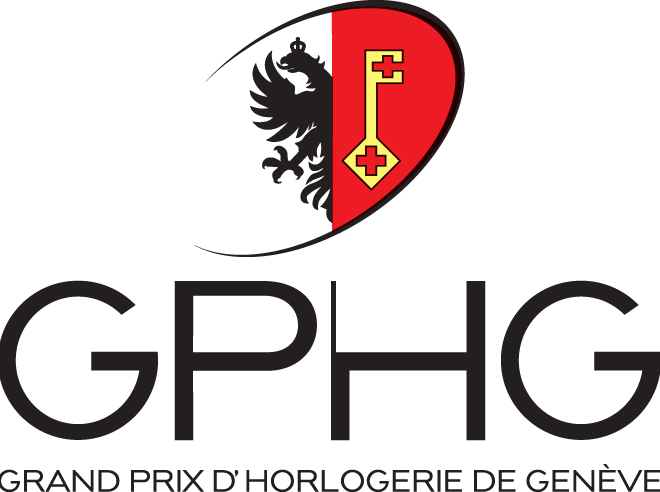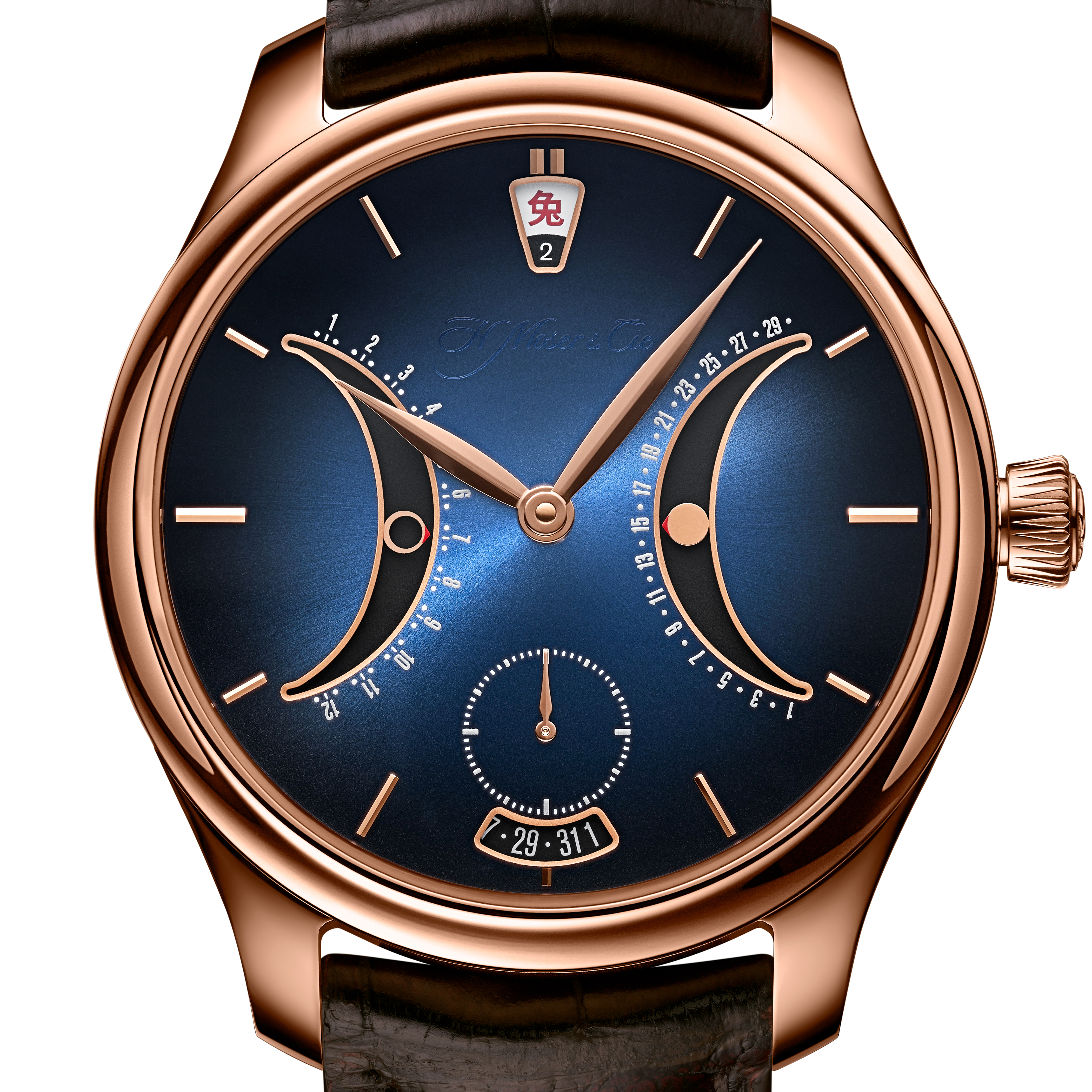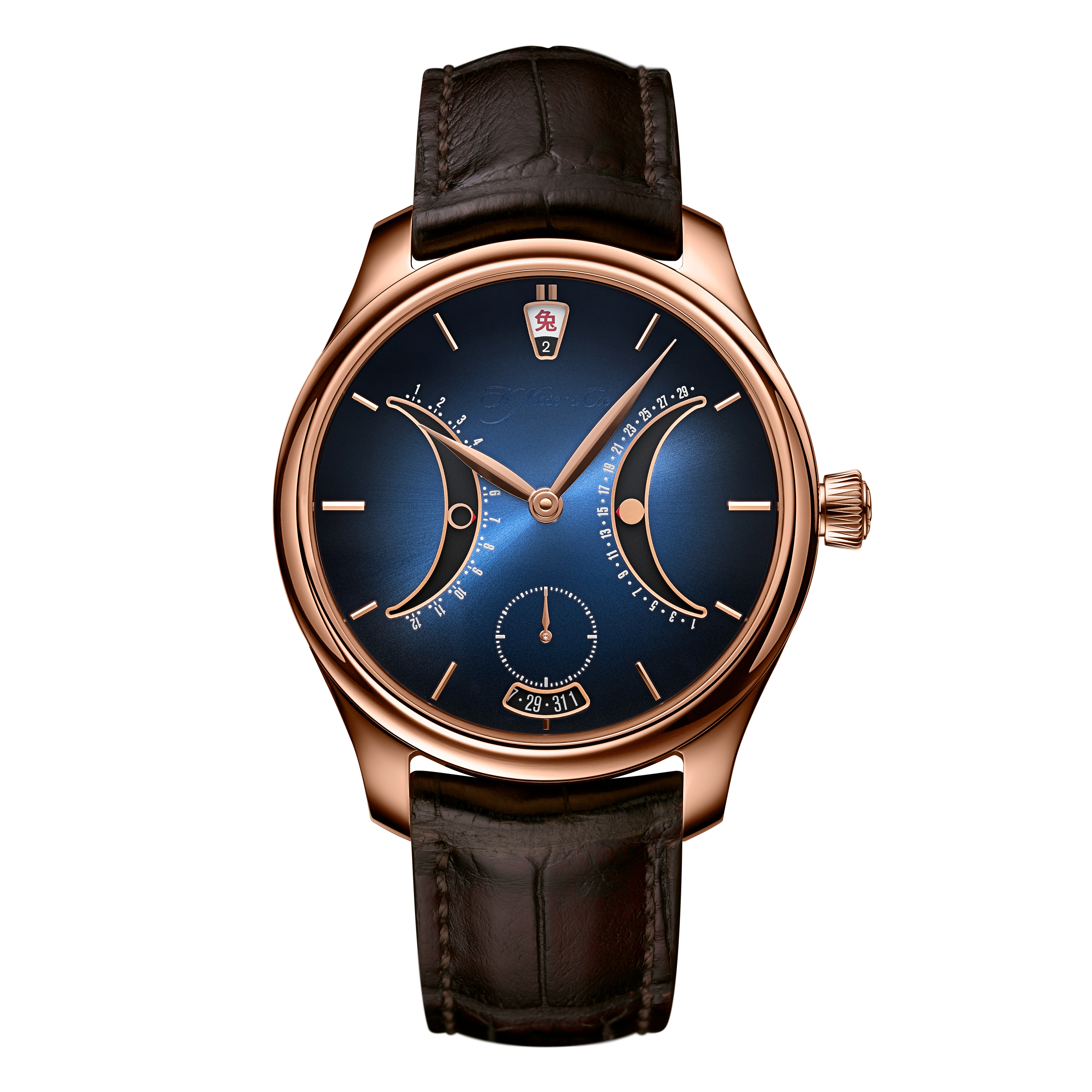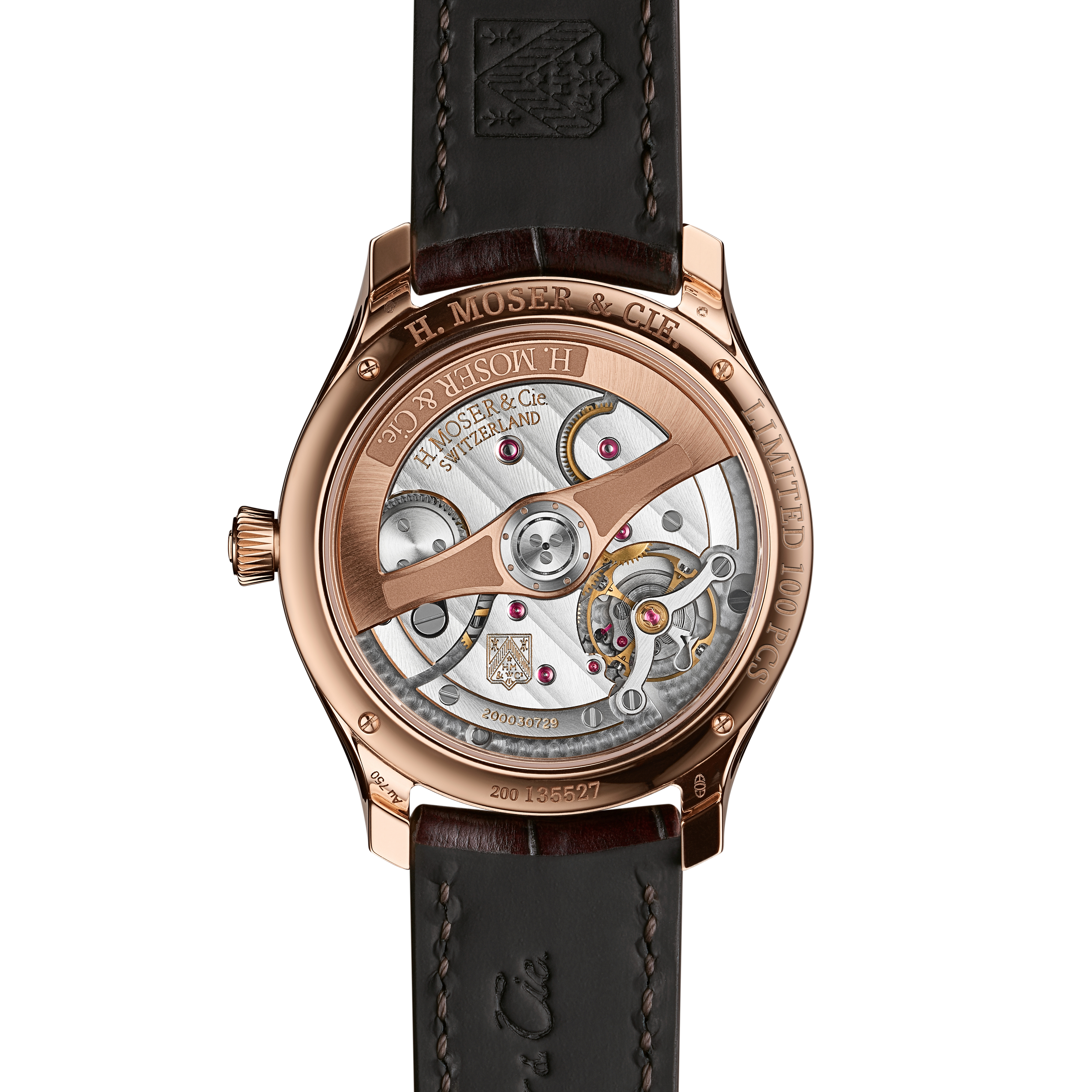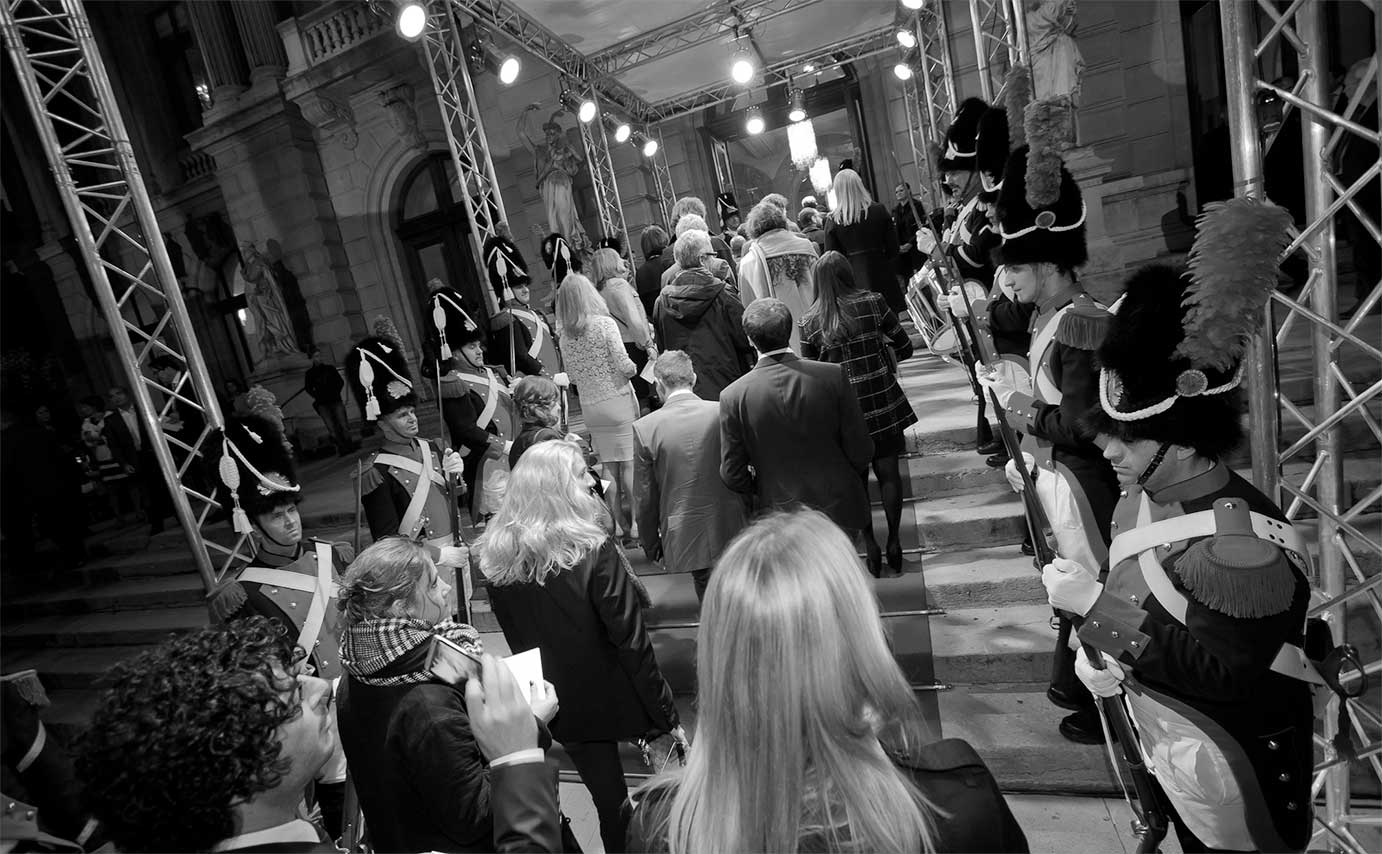
Endeavour Chinese Calendar
Power reserve: 72 h, 21600 vph
Chinese years/embolismic month
Given the acclaim for its perpetual calendar, the most legible and ingenious on the market, H. Moser & Cie. wanted to explore this complication further and add another calendar to its collection. In collaboration with its partner, Agenhor SA, H. Moser & Cie. developed the Endeavour Chinese Calendar Limited Edition, produced in 100 pieces. This timepiece is a real technical feat, combining the Chinese lunisolar calendar with the solar-only Gregorian calendar and displaying the 12 signs of the Chinese zodiac alongside the moon phases, all without requiring any corrections for 12 years. It also symbolises the union of two different cultures and measurements, and their harmonious coexistence. The timepiece unites the sun and moon, combining elements of the solar and lunar calendars, calculated separately, and synchronising them. It does so with an elegant and minimalistic aesthetic that makes the piece user-friendly to read and operate.
People have always felt the need to measure time and to become its master. To this end, they have used heavenly bodies to determine cycles and calendars based on the sun, moon or both. While the Gregorian calendar is exclusively solar, the Chinese calendar is primarily lunar, as it tracks the cycles of the moon, but takes the sun into account at the same time, making it more complicated. This makes it a lunisolar calendar. Rich in cultural and traditional symbolism, it has its roots in the observation of nature thousands of years ago, and makes it possible to follow the rhythm of the lunar solar terms and four seasons, so essential to Chinese agriculture and traditional culture. It is a complex and ancient system for calculating time. By gaining an understanding of the Chinese calendar, one can travel through thousands of years of Chinese history and appreciate its subtleties. With the Endeavour Chinese Calendar Limited Edition, H. Moser & Cie. is paying tribute to traditional Chinese culture.
The Endeavour Chinese Calendar Limited Edition is a true technical feat, displaying the months and days of the Chinese calendar, the days of the Gregorian calendar, the moon phases, and the signs of the zodiac that are associated with each Chinese year. As the lunar calendar is based on the cycles of the moon, Chinese months have 29 or 30 days, in keeping with the phases of the moon, which takes 29.53 days to orbit the Earth. There are 12 lunar months, which means that a lunar year lasts an average of 354.36 days and therefore has 10.88 days fewer than a solar year, which lasts 365.25 days. In a solely lunar calendar, the months shift with respect to the seasons, each month starting around 11 days earlier with every subsequent solar year. To avoid an excessive discrepancy with the solar year, lunisolar calendars have a 13th month every two to three years. These months are known as "embolismic" and are added to keep the lunar years aligned with the four seasons. The Endeavour Chinese Calendar Limited Edition also indicates this extra month. As there are no repeated cycles in the Chinese calendar, it is mechanically impossible to produce a Chinese perpetual calendar. H. Moser & Cie. and Agenhor SA therefore undertook a major challenge in choosing to make a timepiece that is able to precisely indicate all the lunisolar calendar information for every 12 years without any corrections. While the other Chinese calendars on the market require at least 70 manual corrections over a duodecimal period, this is the first movement to operate according to the same cycle without external intervention. This feat is made possible by two cams that work in parallel and convey information on the number and duration of Chinese months using feelers. The Endeavour Chinese Calendar Limited Edition will also take into account the number of Chinese lunisolar months and their duration, the embolismic months, the Chinese lunisolar year and the corresponding animal of the Chinese zodiac, the moon phases, and the dates of the Gregorian calendar, for a duration of 12 years. At the end of this cycle, the cams will very simply be changed for the next 12-year period at the same time as the watch is serviced.
Contrasting with the red gold of the Endeavour case, the Midnight Blue fumé dial bears the H. Moser & Cie logo in transparent lacquer, like a secret signature. It features crescent-shaped windows, one indicating the Chinese lunisolar months, on the left-hand side, and the other simultaneously displaying the Chinese lunisolar days and the moon phase on the right-hand side. Two retrograde hands with rounded tips travel along these windows and return to their starting points once they have completed their course. At 12 o'clock, two windows show the Chinese lunisolar year and the associated animal zodiac, as well as the embolismic month number whenever there is a 13-month year. In a standard 12-month year, this corresponding window will stay black. An off-centred small seconds display sits on top of the Gregorian calendar window at 6 o'clock. Limited to 100 pieces, the Endeavour Chinese Calendar Limited Edition model will be available from H. Moser & Cie.'s partner network worldwide.
Based on H. Moser & Cie.'s HMC 200 automatic in-house movement, the HMC 210 calibre is combined with a module developed by Agenhor SA. As Edouard Meylan, CEO of H. Moser & Cie., explains: "This synergy between our two partner companies gave rise to the Endeavour Chinese Calendar Limited Edition, which conveys the complexity of the Chinese calendar and encapsulates it in an elegant and refined watch that is easy to use, read and adjust. With its minimalist and elegant aesthetics, it is a contemporary westernised interpretation of the Chinese traditional culture, unlike the other models of its kind available on the market, which are extremely complex in functional display, difficult to read, and have a very oriental design. I am convinced that this piece's success will transcend borders and cultures simply because it is a beautiful thing."
